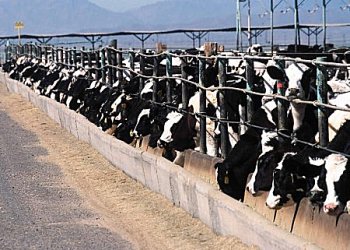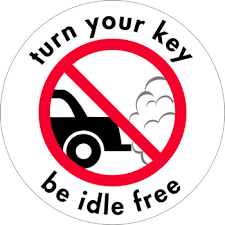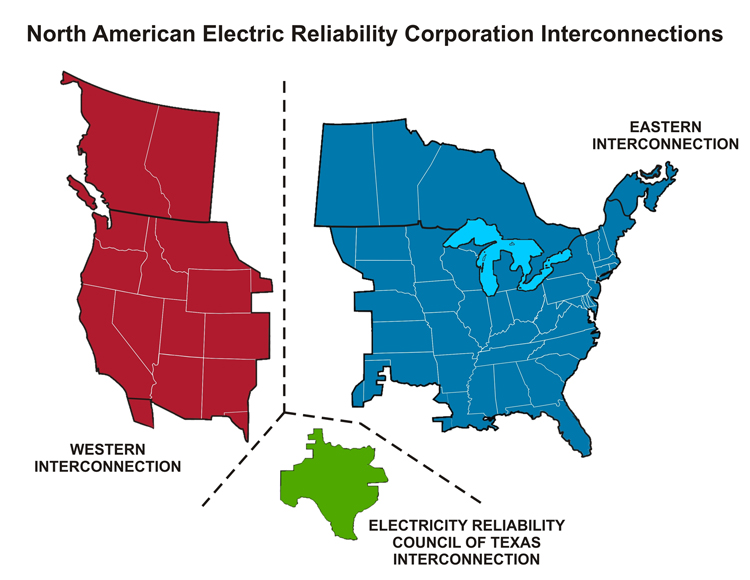Air Quality
California Enacts Legislation Targeting Short-Lived Climate Pollutants
The statute codifies the goals set by the Governor and ARB
On Monday, Governor Brown signed SB 1383 into law, establishing statewide targets for reducing what are known as “short-lived climate pollutants,” which I have discussed in previous posts. The law requires a 40% reduction in both methane and hydrofluorocarbon gases (HFCs) below 2013 levels, and a 50% reduction in black carbon from 2013 level. Legislators …
Continue reading “California Enacts Legislation Targeting Short-Lived Climate Pollutants”
CONTINUE READINGIdling Cars, Dirty Air
The pollution isn’t just indoors. It’s also inside the car or bus.
Being stuck in traffic is even worse than you thought. A new study, reported in yesterday’s NY Times, “pollution levels inside cars at red lights or in traffic jams are up to 40 percent higher than when traffic is moving.” But things could be worse: you could be a kid on an older school bus. …
Continue reading “Idling Cars, Dirty Air”
CONTINUE READINGThe future politics of cap-and-trade in California
It doesn’t look so good for the oil and gas industry
As Ann and Ethan both noted, two major pieces of climate legislation were passed by the California legislature this week, and Governor Brown has promised to sign both bills. Overall, the legislation extends the state’s greenhouse gas reduction goals (which were originally to reach 1990 levels of emissions by 2020) out to a 40% reduction …
Continue reading “The future politics of cap-and-trade in California”
CONTINUE READINGRed, white, blue and smog
Fireworks leave behind a lot of pollutants
As a kid on the South Side of Chicago, summertime meant seeing White Sox games at Comiskey Park (technically now called U.S. Cellular Park, but I will never call it that). If the Sox won, there were fireworks. And on Saturdays, there were fireworks even if they didn’t. I have a distinct memory of asking …
Continue reading “Red, white, blue and smog”
CONTINUE READINGMajor Settlement Announced in Volkswagen Emissions Fraud Litigation
$14.7 Billion Civil Enforcement Settlement is a Victory for Consumers, Environmental Prosecutors
Federal and state environmental prosecutors today announced a proposed settlement of government civil enforcement litigation they’ve pursued against Volkswagen in response to the automaker’s acknowledged efforts to cheat federal and state auto emission standards and defraud consumers. The complex settlement, lodged with the assigned U.S. district court judge in San Francisco, requires Volkswagen to pay …
Continue reading “Major Settlement Announced in Volkswagen Emissions Fraud Litigation”
CONTINUE READINGRonald Reagan – Environmentalist Governor
Reagan’s record in California included major environmental achievements.
It may surprise you to learn this — it certainly surprised me. But Ronald Reagan has been called “the most environmental governor in California history — protecting wild rivers from dams, preserving a Sierra wilderness by blocking highway builders, creating an air resources board that led to the nation’s first auto smog controls.” This may …
Continue reading “Ronald Reagan – Environmentalist Governor”
CONTINUE READINGThe Irony of a Developing Nation’s Climate Agenda
The challenge of developing and decarbonizing at the same time
Mexico has been busy. Or at least, its energy and environmental ministers have been. Over the last several years, Mexico has held its first auction for renewable energy contracts, opened its energy market to private competitors, and increased its renewable energy capacity by more than thirty times the level in 2008. At the same time, …
Continue reading “The Irony of a Developing Nation’s Climate Agenda”
CONTINUE READINGEnergy Justice and Sustainability
Over two billion people lack access to modern energy sources.
Energy justice is an unfamiliar concept to most people, but it addresses a crucial problem. A new book by Lakshman Guruswamy addresses some of the key facts: About a third of the world’s population — between 2 and 2.5 billion people — primarily rely on household burning of wood, coal, or other materials like dung for …
Continue reading “Energy Justice and Sustainability”
CONTINUE READINGUCLA Files Amicus Brief on Behalf of Electric Grid Experts in “Clean Power Plan” Case
Supporting EPA’s regulation of power-sector carbon emissions
Today, several of us at UCLA Law School’s Emmett Institute on Climate Change and the Environment—me, Cara Horowitz, Sarah Duffy, & Ann Carlson—together with Professor William Boyd of University of Colorado Law School, filed an amici curiae brief on behalf of five electric grid experts in support of the U.S. Environmental Protection Agency’s “Clean Power Plan” …
CONTINUE READINGCreating An Exit Strategy for Our Use of Natural Gas
To meet long-term greenhouse gas reduction goals, all fossil fuels have to go, even natural gas.
Coal is the climate’s Public Enemy #1. The use of natural gas has helped to ensure that the coal problem has not become even worse. Without natural gas, we would use more coal for space heating and for many more industrial processes than is currently the practice. Without natural gas, our reliance on coal for …
Continue reading “Creating An Exit Strategy for Our Use of Natural Gas”
CONTINUE READING











